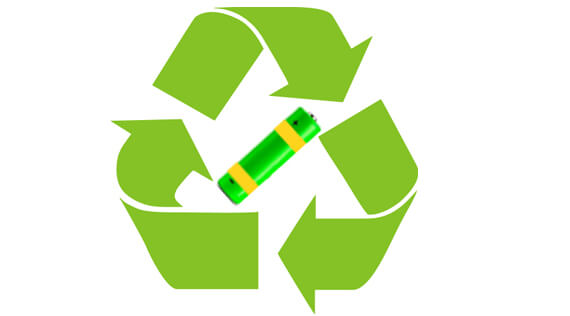Why can't I just throw my old devices and batteries in the trash? Because if your electronic devices end up in a landfill, it is not only about cables and plastic which in itself is already a big problem, it is toxic components that can damage the planet.
Batteries are recyclable, and in fact it is very necessary that we do so. They contain metals and chemicals that can be toxic such as mercury, lead or cadmium, which are very dangerous for both health and the environment.
The batteries should not be thrown in the trash, because they should avoid touching the ground, since that way they can contaminate the water sheets. Button batteries are considered very toxic, that is, those used in watches. For example, if these batteries are thrown away with the trash and reach the water sheets, they can contaminate 600,000 liters of the water that many people drink.
The main components of the batteries are mercury, cadmium, nickel and manganese; Exposure to these chemicals can cause cancer in humans.
There is a wide variety of batteries such as the following:
Dry batteries: Also called "salt" or "zinc-carbon", they contain very little mercury (0.01%). Degree of toxicity: Very low.
Alkaline batteries: They have a mercury content of 0.5%.
Degree of toxicity: Toxic.
Rechargeable batteries: Contain cadmium. They do not contain mercury.
Degree of toxicity: Toxic.
Button batteries: Some contain up to 30% mercury.
Degree of toxicity: Very high.
"Green" batteries: They lack cadmium and mercury, although some of their components are unknown. Degree of toxicity: Unknown.
So what do I do with all my used batteries?
There are a couple of ways to properly dispose of rechargeable and single-use batteries, such as those of type AA, AAA and D, which are usually used in flashlights, toys and other household electronics.
The recycling process begins by disposing of used batteries using the selective collection containers that exist. If we carry out a selective collection, the used batteries are taken to a recycling plant, where the mercury is separated from other metals and the rest of the materials that constitute the used batteries can be recovered.
Best Buy, Whole Foods, Home Depot, Lowes and Staples have free delivery points to dispose of your used batteries. We suggest you collect them in a plastic container and take them when it begins to fill.
You can also check Earth911, a website that helps you find the recycling location closest to your home depending on the type of battery you need to dispose of, for example, alkaline, button cell, lithium, zinc-air, etc.

